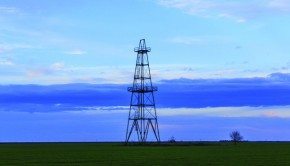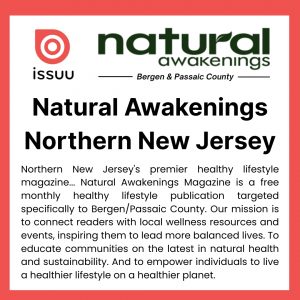Growing Trend to Deny Fracking Waste
An increasing number of New Jersey municipalities are passing local measures to stop the importation of wastes produced by oil and gas drilling. The Red Bank, New Jersey, council passed an ordinance to ban fracking waste, following Highland Park, New Jersey, which passed a similar ordinance just a few weeks prior. Red Bank became the fourth state municipality to ban the dangerous waste, along with Elizabeth and Edison. South Brunswick is also expected to pass a fracking waste ban by the end of the year. An ordinance in Milltown, spearheaded by Councilwoman Doriann Kerber and the Milltown Environmental Commission, will get its first reading in December.
Highland Park Council President Susan Welkovits states, “Highland Park marks another important move forward in preserving our environment and protecting public health. This is not a symbolic gesture by any means. The threat and costs of environmental pollution from fracking wastes are too great, not just for Highland Park, but for all of New Jersey. We hope that other communities will follow Highland Park’s early support and work together for the long-term success of our environment. The decisions we make today must benefit our future generations, not burden them.”
These ordinances aim to address gaps in regulation that exist on a federal and state level that allow out-of-state fracking wastes into New Jersey. Fracking waste has been confirmed to have entered Deepwater, Carteret, Elizabeth and South Kearny, and was largely untreated and unregulated. In South Kearney, radioactivity levels in fracking waste were so high that they violated the company’s permit. In 2009 and 2010, about 1.4 million gallons of improperly treated wastewater collected from fracking wells were released into Delaware waters through the commercial side of the DuPont wastewater plant in Deepwater. New Jersey has about 70 wastewater treatment plants above drinking water intakes on the Passaic River and another 60 sewage treatment plants exist above drinking water intakes on the Raritan River.
Red Bank Council President Kathleen Horgan says, “Red Bank is proud to have safeguarded our residents from cancer-causing chemicals and radioactivity of fracking wastes that find their way into our communities from neighboring states like Pennsylvania. There is genuine concern that these wastes could end up in our water supply, and I urge all New Jersey municipalities to stand together and pass ordinances banning fracking wastes from their communities.”
Red Bank Councilman Edward Zipprich notes, “Red Bank is a community that prides itself on our natural resources such as the Navesink River. Meanwhile, the acceptance of fracking wastes, whether being mistreated at facilities that can’t handle it or being spread on our roads, threatens that. These wastes pose significant public health risks and risks to the resources of our borough.”
The fracking waste ordinances specifically prohibit the treatment, discharge, disposal, application to roadway or storage of wastewater, wastewater solids, sludge, drill cuttings or other byproducts from natural gas exploration or production using hydraulic fracturing. Hydraulic fracturing, or fracking, for natural gas and oil exploration and production has been found to use a variety of contaminating chemicals and materials.
The fracking drilling technique uses vast quantities of water mixed with chemicals and sand pumped into shale formations at high pressure to fracture the rock and extract oil or gas, with millions of gallons of contaminated water flowing back out of the well and contaminated rock and cuttings left over. Liquid and solid oil or gas wastes often contain constituents that are dangerous to human health and the environment, including carcinogenic materials. These constituents can include corrosive salts, oil and grease, heavy metals, volatile organic compounds and naturally occurring radioactive materials such as radium-226 and radium-228.
Conventional treatment facilities are not equipped to treat the complicated mixture of chemicals, heavy metals, volatile organics and radioactivity found in fracking wastes, which could allow contaminants to be discharged into public rivers and streams, harming drinking water supplies for downstream communities and aquatic life. The brine from fracking is used on roads to melt ice or keep down dust, but the chemicals used could run off onto school playgrounds, residential properties and farmland, and can ultimately contaminate rivers, streams and underground aquifers that feed local drinking water supplies.
Nearly 30 years ago the U.S. Environmental Protection Agency considered whether oil and gas development waste should be regulated under the Resource Conservation and Recovery Act, but decided not to regulate them. Thus, there is no federal requirement for disclosure of what are considered secret and proprietary mixes of fracking fluids, making the full threat of fracking wastes unknown and more difficult to treat. The New Jersey Department of Environmental Protection lacks sufficient tracking and regulation on oil and gas wastes that enter New Jersey. In September 2012 and again in August 2014, Governor Christie vetoed statewide legislation that would have prohibited fracking wastes in the state.
A spokesperson for Food & Water Watch states, “The oil and gas industry is taking advantage of loopholes in the law that allow fracking waste to be treated as if it’s not hazardous waste. Because of this, fracking wastes have already found their way into New Jersey, and due to lax oversight, we don’t even know where it’s all going. It is now up to local governments to stand up for the health and safety of their communities. Leaders in Highland Park, Red Bank, Milltown, and South Brunswick have had the foresight to see this as the emerging health issue that it is.”
Rita Yelda is a senior organizer for Food & Water Watch, a consumer advocacy organization. For more information, visit FoodAndWaterWatch.org.



























